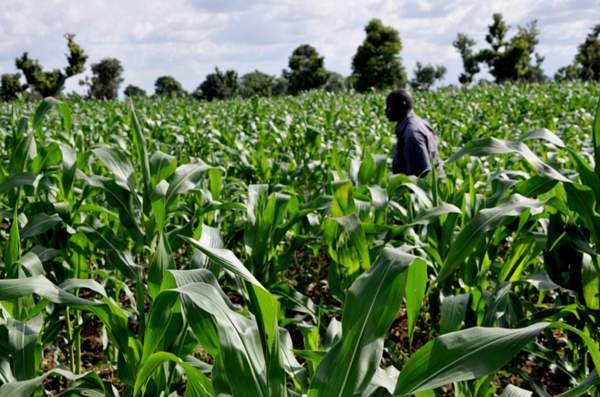Your soil fertility will be affected. You will get cancer. You will die. Better still, you will lose a leg. Well, the last one is pun intended to highlight just a few one liners that you hear when the GMOs discussion ensues. On the other end of the debate are those who push GMOs as the silver bullet for agricultural production and food security in Africa.
Its even worse that overtime, the media has portrayed and centered on the bad versus the good of GMOs resulting to mostly confusing or negative perceptions among the masses. For those who may not understand the popular acronym, GMOs are genetically modified organisms (or crops in this context).
With every new technology in the market, I prefer to give some benefit of doubt, for who knows, they could be the next internet discovery. This is what led me to the African Agricultural Technology Foundation (AATF) side event at the 7th Africa Agriculture Science Week whose thematic focus was on taking GM crops to market in sub-Saharan Africa – with special focus on policy and the regulatory environment.
African agricultural productivity is on a decline while the population growth is on the increase. Land pieces are giving way to residential settlement which begs the question, how will we feed the growing population? Of course, its said over and over again that technology has the potential to reverse the low productivity in Africa and unlock the potential of smallholder farmers. However, these technologies vary and may either be chemical, mechanical, biological or others.
While the society seems to readily accept the other technologies, the same can not be said for biological technologies, or biotech. In a nutshell, biotech refers to technologies that manipulate the genes of various organisms, crops in this case, to modify their characteristics with a specific purpose, and through that create better or worse products.
AATF is a biotech proponent whose main mandate is ensuring access and delivery of this technology to sub-Saharan Africa, a critical challenge for African agriculture. They do this by building partnerships with both public and private sectors to help access, adapt and deliver appropriate agricultural technologies for use by smallholder farmers in sub-Saharan Africa.
After sitting through the session, I learnt that AATF has pioneered a couple of biotech projects in Africa. In the maize value chain, they are working with partners to introduce a herbicide-resistant maize seed coated with Imazapyr herbicide that kills Striga seeds on contact. Striga is a notorious weed that sucks out the life from farmers’ maize plants resulting to massive farm losses. In addition, I learnt that some countries like Kenya and Nigeria are facilitating the adoption of the Bt Cotton to help meet the growing demand for cotton.
Examples like these got me thinking, what if?
What if the communications around the adoption or otherwise of GMOs are not so extreme and dismissive – and I mean on both sides of the debate? Given the diminishing pieces of land and the increasingly effects of climate change, what if GMOs can indeed contribute to, or be one of the solutions to food security of the growing African population?
What if we create regulatory frameworks to ensure that the food produced is of great quality and has no harmful effects to human beings with limited impact on the environment?
What if researchers communicate the effects, both positive and negative, of some of the biotech applications so that consumers are well aware of them? As, currently, there exists a lot of speculation around biotech crops and what they represent.
What if governments in Africa give biotech trials a chance to see how the same would be when it comes to feeding the expanding populations? I believe African agriculture could do with some of the benefits of biotech products, that is, increased yields, less labour, less inputs use and less tillage.
Besides, what if as communicators we don’t speculate on the effects of the biotech applications but work with the scientists to help raise awareness on the key areas of the debate when it comes to biotechnology? This could help clear the confusing perceptions in the minds of not just farmers but also consumers.
And lastly, what if GMOs are just given a chance?
Blogpost by Emmie Kio, emmiewakio(at)gmail.com, #AASW7 social reporter.
This post represents the author’s views only.
Photo courtesy: IITA
This post represents the author’s views only.
Photo courtesy: IITA

No comments:
Post a Comment